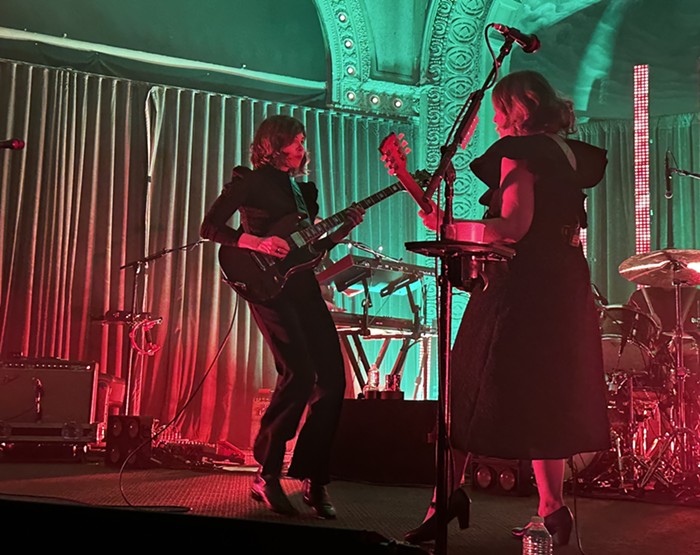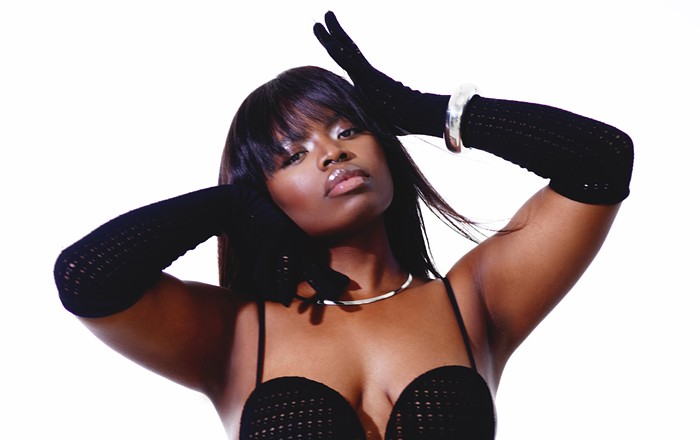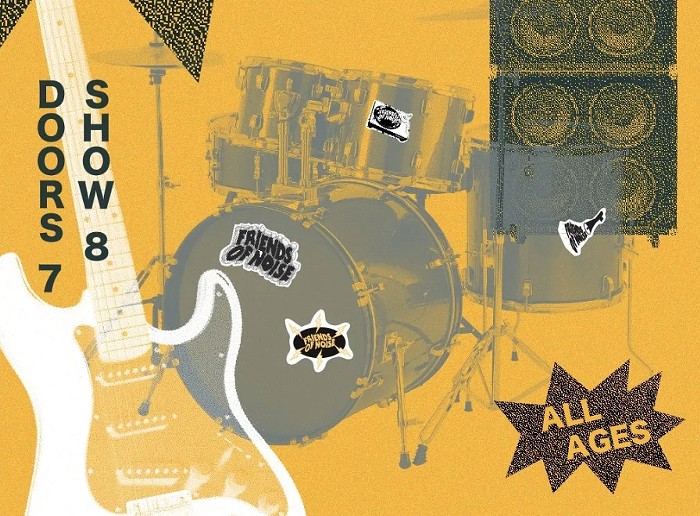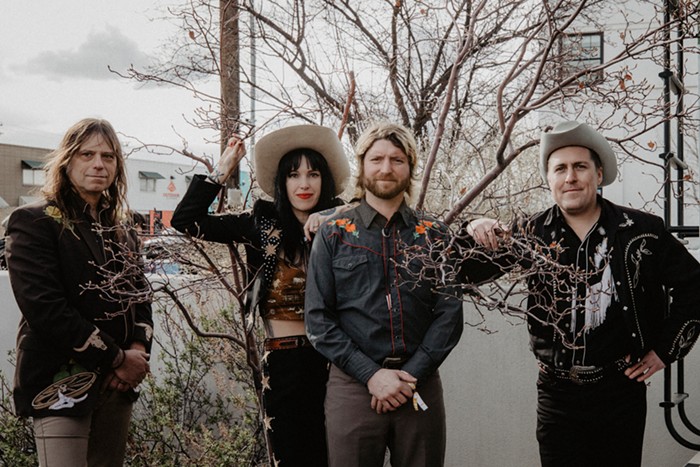LAST JUNE, on the eve of a European tour with his new group Black Dub, Daniel Lanois had a serious motorcycle accident. The Canadian producer suffered broken ribs, a cracked pelvis, and lung damage. At the time, he was working on Neil Young's latest album, Le Noise (whose title is a play on Lanois' name).
"We were three-quarters done when I had my accident," Lanois says on the phone from Los Angeles. "So that put me in intensive care for three weeks. And the day I got out—I couldn't even walk at all, I'm in a wheelchair, I couldn't even get out of bed—Neil calls and says, 'Okay, let's get back to the record.' And I thought, well, he's a Canadian compadre eggin' me on. In any case, it really helped to keep my mind off of my pain and just pour into the work."
The Neil Young record is the latest in a string of productions for high-profile artists, including U2's biggest albums and the best two Bob Dylan records recorded in my lifetime. But perhaps Lanois' greatest achievements (and this is saying a lot—have you heard Emmylou Harris' Wrecking Ball?) are the stunning records released under his own name. Beginning with 1989's simple, gorgeous Acadie, Lanois' solo work marries traditional elements with futuristic studio sonics. In particular, 1993's roiling, excellent For the Beauty of Wynona exhibits Lanois' instinctual ability to create a tactile sonic environment for songs to move within, ably evoking both the cold north of his French-Canadian upbringing and the steamy, rhythmic sound of his then-current home of New Orleans.
Lanois has spent recent years in Los Angeles, but he says Jamaica will be the site of his next work. "My studios are only ever out of suitcases. We set up a studio anywhere in about three hours." In the meantime, his band Black Dub is a supergroup of sorts, including drummer Brian Blade and singer Trixie Whitley. Black Dub's self-titled debut is an amalgam of Lanois' heady, interior sound and live, funk- and dub-infused band performances of songs like the gracefully longing "I Believe in You," and "Surely," a torch song capped by wrenching, outstanding vocals from Whitley. She's the daughter of singer/songwriter Chris Whitley, who died in 2005 after leaving a catalog of remarkable and often overlooked work. In opposition to her father's often subdued singing, Trixie's vocals are shockingly powerful, a soulful gospel holler that injects Lanois' songwriting with a vivid heat.
"I knew that she was playing drums and writing songs and singing. I was just hearing it through her dad," Lanois says. "Then we met again about three years back and she's all grown up and singing beautifully. I thought, well, maybe I should invite her to be a part of this new band, just to keep the fire burning. She's such a great singer that it gives me an opportunity to go up a different street compositionally."
Black Dub is a chance for Lanois to escape the sometime lush sound he's become known for. "I never think about the sonic legacy too much, because, I mean, it's probably chasin' me around wherever I go, but I always think I'm fabulously original every morning. But I think over the years my sound has dried up considerably," he says. "I'm a real fan of funk music, and I like the lean aspect of floor components chasing in a track. I don't like just throwing a bunch of reverb on stuff. I might have done it in the past, but I'm not doing it anymore, I promise."



















